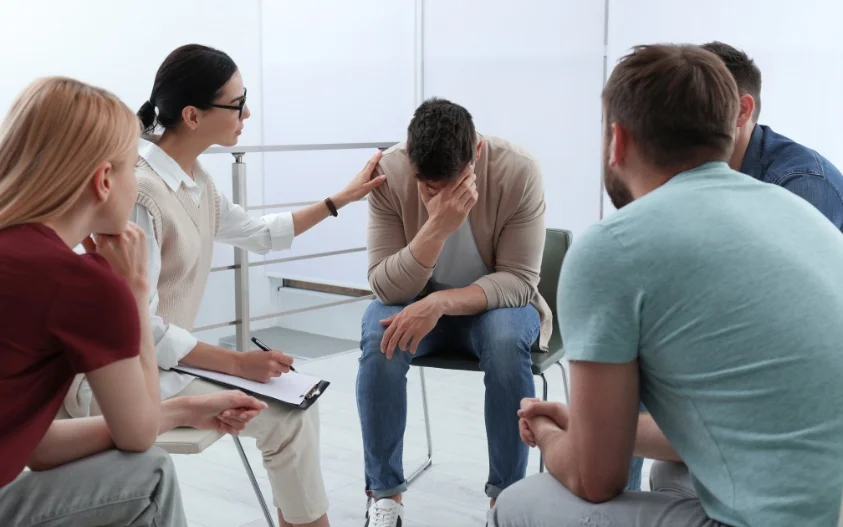24/7 Helpline:
(866) 899-221924/7 Helpline:
(866) 899-2219
Learn more about PTSD Rehab centers in Mooresville
PTSD Rehab in Other Cities

Other Insurance Options

BHS | Behavioral Health Systems

ComPsych

Coventry Health Care

Ambetter

UMR

GEHA

Cigna

Group Health Incorporated

Meritain

CareFirst

Ceridian

Private insurance

BlueCross

Optima

WellCare Health Plans

Multiplan

Sliding scale payment assistance

Magellan

MVP Healthcare

UnitedHealth Group










